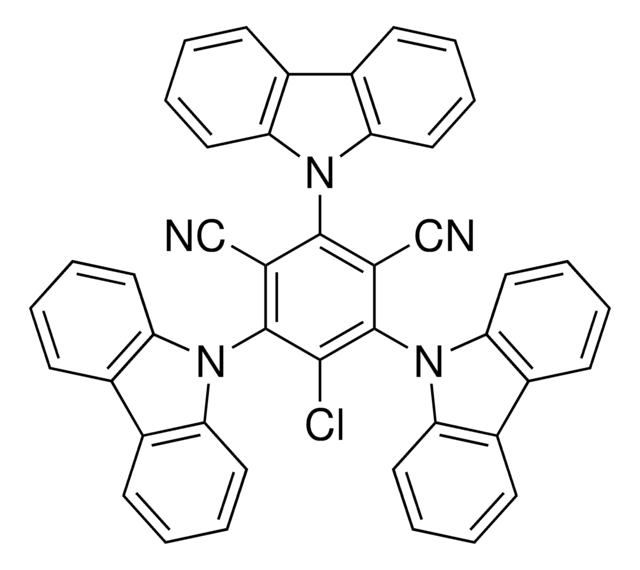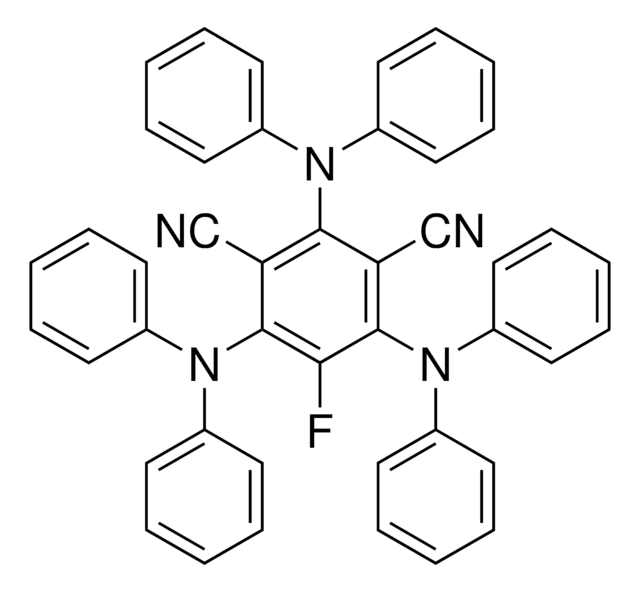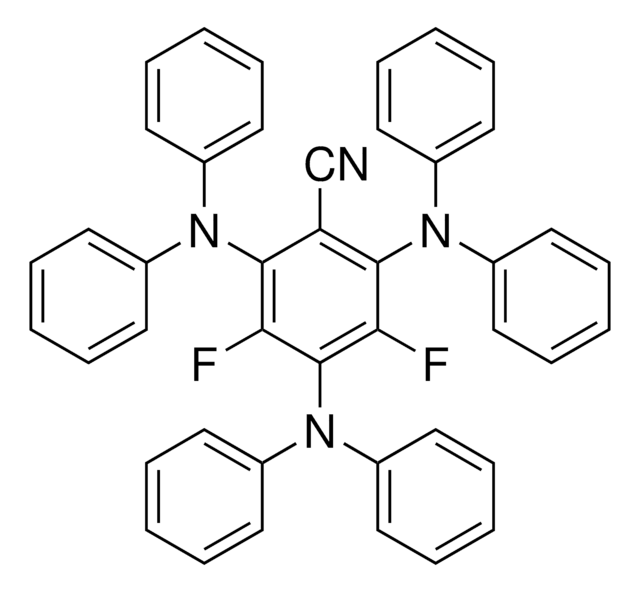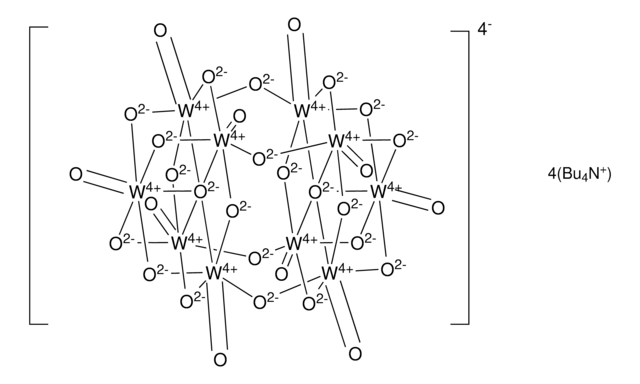915297
4CzIPN
≥99.9%
Synonym(s):
1,2,3,5-Tetrakis(carbazol-9-yl)-4,6-dicyanobenzene, 2,4,5,6-Tetrakis(9H-carbazol-9-yl) isophthalonitrile
Sign Into View Organizational & Contract Pricing
All Photos(3)
About This Item
Empirical Formula (Hill Notation):
C56H32N6
CAS Number:
Molecular Weight:
788.89
MDL number:
UNSPSC Code:
12352103
NACRES:
NA.22
Recommended Products
Quality Level
Assay
≥99.9%
form
powder
reaction suitability
reaction type: Photocatalysis
reagent type: catalyst
Looking for similar products? Visit Product Comparison Guide
Application
4CzIPN is cyanoarene-based donor-acceptor photocatalyst. This highly stable, versatile organic photocatalyst has an excellent redox window allowing for a broad range of applications. It can also be used in the manufacturing of OLEDs.
Product can be used with our line of photoreactors: Including Penn PhD (Z744035) & SynLED 2.0 (Z744080)
Product can be used with our line of photoreactors: Including Penn PhD (Z744035) & SynLED 2.0 (Z744080)
Other Notes
Legal Information
Sold in collaboration with Kyulux, Inc.
related product
Product No.
Description
Pricing
Storage Class Code
11 - Combustible Solids
WGK
WGK 3
Certificates of Analysis (COA)
Search for Certificates of Analysis (COA) by entering the products Lot/Batch Number. Lot and Batch Numbers can be found on a product’s label following the words ‘Lot’ or ‘Batch’.
Already Own This Product?
Find documentation for the products that you have recently purchased in the Document Library.
Hiroki Uoyama et al.
Nature, 492(7428), 234-238 (2012-12-14)
The inherent flexibility afforded by molecular design has accelerated the development of a wide variety of organic semiconductors over the past two decades. In particular, great advances have been made in the development of materials for organic light-emitting diodes (OLEDs)
Yong Yao Loh et al.
Science (New York, N.Y.), 358(6367), 1182-1187 (2017-11-11)
Deuterium- and tritium-labeled pharmaceutical compounds are pivotal diagnostic tools in drug discovery research, providing vital information about the biological fate of drugs and drug metabolites. Herein we demonstrate that a photoredox-mediated hydrogen atom transfer protocol can efficiently and selectively install
Our team of scientists has experience in all areas of research including Life Science, Material Science, Chemical Synthesis, Chromatography, Analytical and many others.
Contact Technical Service![(Ir[dF(CF3)ppy]2(dtbpy))PF6](/deepweb/assets/sigmaaldrich/product/structures/982/913/02dd8ddd-6deb-40a0-ab9b-07b18f1abb09/640/02dd8ddd-6deb-40a0-ab9b-07b18f1abb09.png)





![[Ir(dtbbpy)(ppy)2]PF6](/deepweb/assets/sigmaaldrich/product/structures/158/329/2544d673-d267-4aa1-8f46-2652aad4bfa0/640/2544d673-d267-4aa1-8f46-2652aad4bfa0.png)


